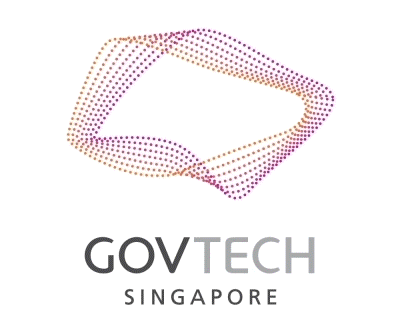The pay expectations for tech workers in Singapore’s public sector have changed significantly in recent years. Singapore’s premier organization for creating safe, citizen-focused digital services, GovTech, is no longer viewed as a stepping stone to private companies. In actuality, its pay now remarkably resembles that of many mid-sized companies. GovTech has emerged as a major player in the digital job competition, with top positions paying over S$17,000 per month and average salaries of S$7,640.

For comparison, the starting salary for a Governance Officer is approximately S$4,477 per month, which may appear low at first. However, when you add in government benefits, a robust training program, and job security, the entire package becomes quite alluring, especially for individuals just starting their careers. By comparison, those in senior engineering or infrastructure positions are earning upwards of S$15,000 to S$17,000 monthly, frequently without the volatility or performance pressure of venture-backed software businesses. For seasoned professionals seeking a steady income and a sense of purpose, this pay plan is very advantageous.
GovTech Salary Information in Singapore
| Key Details | Information |
|---|---|
| Agency | Government Technology Agency (GovTech Singapore) |
| Country | Singapore |
| Monthly Salary Range | S$4,477 (entry) – S$17,102 (senior roles) |
| Average Monthly Salary | S$7,640 |
| Average Annual Salary | S$91,680 |
| Daily Pay Range | S$89.45 – S$250 |
| Roles with Highest Reported Pay | Detective, Senior Software Engineer, Project Engineer |
| Roles with Entry-Level Pay | Governance Officer, Associate Tech Roles |
| Lowest Reported Annual Pay | S$84,372 |
| Highest Reported Annual Pay | S$94,404 |
| Source | Jooble SG GovTech Salary |
GovTech has greatly decreased its personnel turnover by utilizing targeted talent streams and providing attractive packages. Many multinational companies halted hiring, reduced benefits, and suspended bonuses during the 2023 tech hiring freeze. Nonetheless, GovTech kept up its hiring pace and kept pushing for digital leadership initiatives. In addition to improving morale, this continuity established GovTech as a very effective landing spot for displaced data scientists and engineers.
The agency’s evolution from a back-office government IT company to an agile, product-driven powerhouse has been gradual over the last ten years. With the support of government-scale funding, GovTech now functions more like a mission-driven startup thanks to partnerships with IT companies and open-source communities. Talent that is keen to tackle systemic problems rather than optimize ad algorithms has been drawn away from more commercial settings as a result of this trend.
The change is particularly appealing to software professionals. A senior software developer at GovTech can make between S$12,000 and S$17,500 per month, according to NodeFlair data. When compared to counterparts at traditional public universities, these numbers are remarkably obvious. Additionally, while private IT companies might provide ownership, short project cycles and burnout risks frequently offset that. Without changing course every three months, developers at GovTech are automating paperwork, building platforms that reach millions of people, and simplifying governmental services.
In the context of digital transformation, GovTech is one of the few public bodies that has preserved its startup enthusiasm while constructing infrastructure that genuinely grows. Consider the internal leadership and strict deadlines for the Singpass digital identity system and the TraceTogether app. Data engineers, security analysts, product managers, and user interface designers were responsible for those launches; many of them now claim pay increases that have significantly improved since 2019.
GovTech’s employment strategy accelerated during the pandemic due to the spike in demand for digital public services. Project managers, data analysts, and cybersecurity engineers are now not just crucial, but also at the heart of Singapore’s national policy. Higher pay ranges, quicker promotions, and more defined career paths were the results of that haste, and these characteristics still exist today. The effect was quite similar to how NASA’s reputation flourished during the space race: intelligent, motivated individuals wanted to join.
GovTech’s structure is incredibly flexible, enabling lateral movement between clusters such as Data Science, Smart Nation, and HealthTech. Engineers are able to switch between mission areas without losing their pay grade or seniority. A developer who begins working on e-government forms, for instance, might switch to cybersecurity automation two years later—all the while keeping a steady flow of revenue. In startups, whose job scope is frequently defined by restricted specialization, this lateral flexibility is rarely possible.
GovTech’s teams frequently have access to state-of-the-art research thanks to strategic alliances with organizations like AI Singapore and the National University of Singapore. These partnerships are anticipated to provide AI-based governance tools, fraud detection systems, and possibly self-sufficient data processing systems for urban planning in the upcoming years. All of this leads to an increase in the number of employment in digital infrastructure, and as a result, incomes are rising.
It’s also important to remember that GovTech isn’t simply about rewarding programmers. User researchers, product managers, systems architects, and service designers are all fairly compensated. According to Indeed, a service manager makes about S$89.45 a day, with senior positions paying much more. Jobs that concentrate on accessibility, user behavior, and community involvement have become more popular—and pay increases—as computer products become more human-facing.
GovTech has established a compensation culture that is similar to Silicon Valley without imitating its excesses by incorporating performance incentives into civil service structures. For professionals in their early stages, that implies progress without burnout. It provides leadership without politics for professionals in their mid-career. Additionally, for Singapore, it means a government that is digitally literate and able to create technologies that scale, work, and serve.
